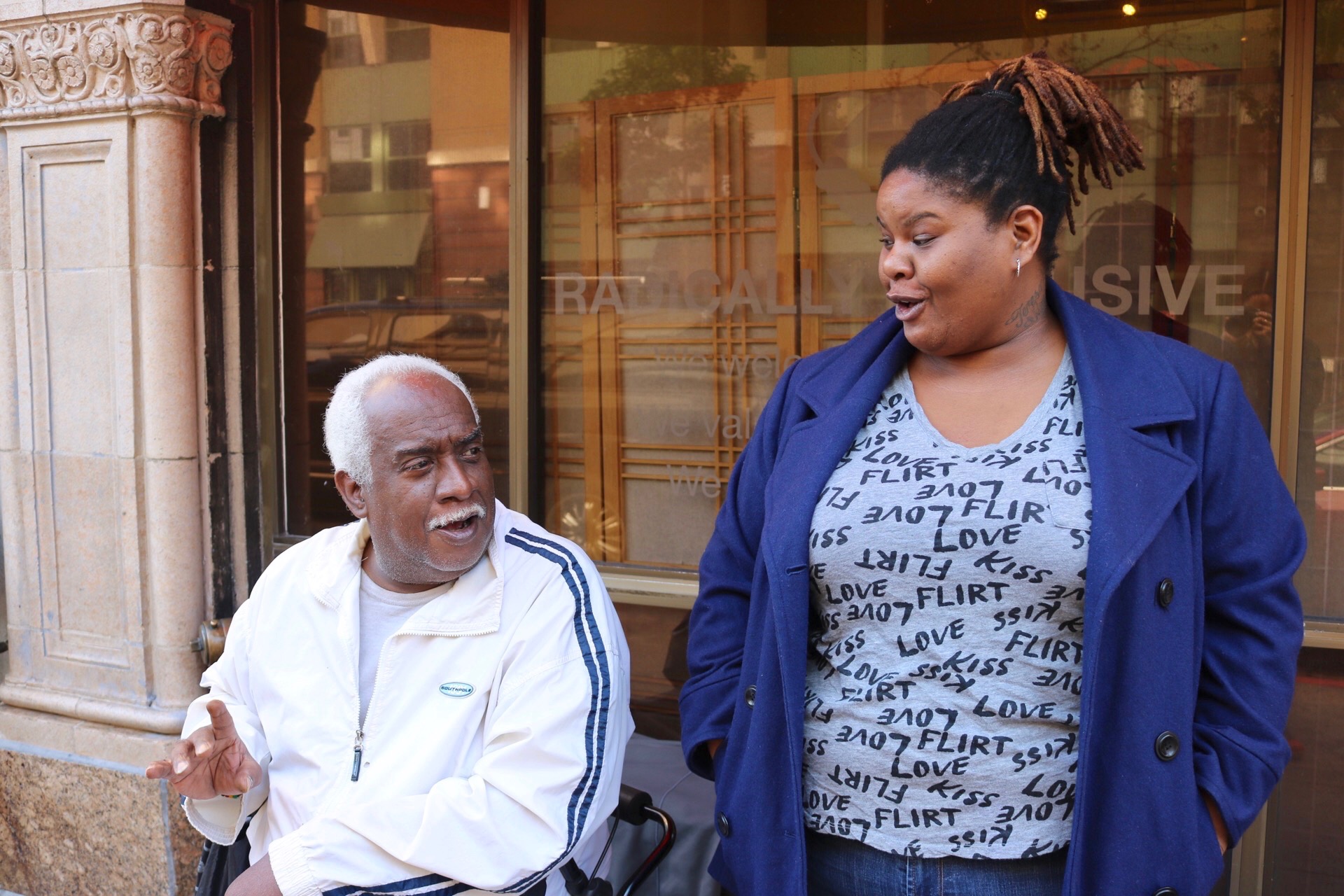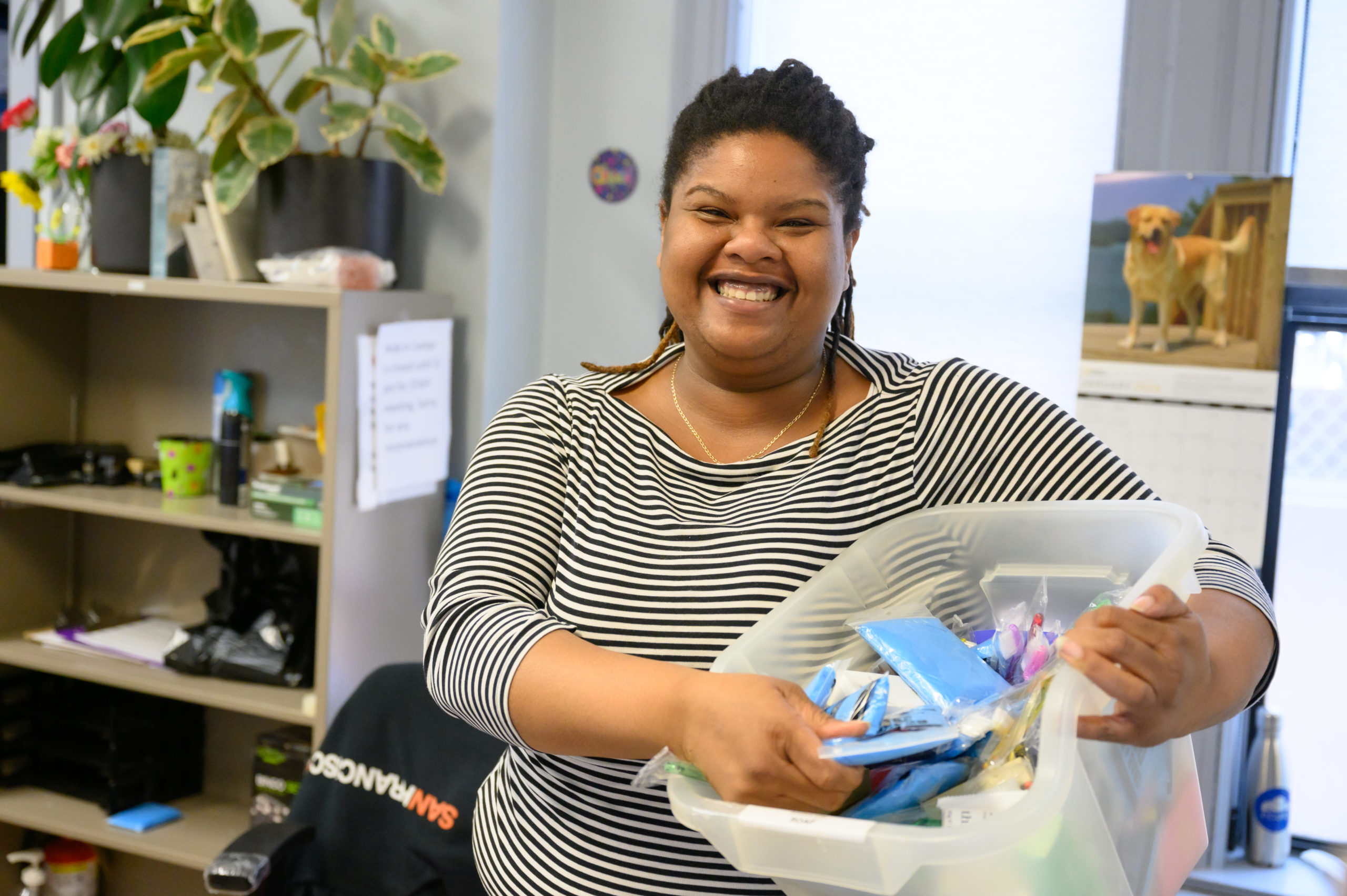Reflections on Client Advocacy, or What Is a Case Manager? (Part 2)
Walk-In Center client advocate Nikki Dove says her role at GLIDE is a constant reminder of how hard life can be. “Working here isn’t easy,” Nikki explains. “It’s not for the faint of heart or cold of heart. You’ve got to have humility. And you’ve got to recognize that not everyone knows how to help themselves, which is why spaces like the Walk-In Center are so important. We help anybody and everybody figure out how to navigate systems for themselves.”
The following reflections from Nikki (lightly edited for publication here) comprise the second installment in our series on the vital but little understood work of case managers. (You can read our first installment here.) What does a case manager do? In this series, we examine and honor the complexity and compassion of case management and client advocacy, here on the front lines of GLIDE’s efforts to support the wellbeing and self-determination of our community.
We have all been there, navigating a system that we aren’t familiar with. It is irritating and frustrating. Now think about how stressful that would be if your needs were immediate–like shelter.
As a Client Advocate in the Walk-In Center, I spend a lot of time trying to support people in communicating their needs. I hand out tokens for transportation, deliver hygiene kits, and support people with their housing applications.
Because access to housing is so scarce now, I am constantly having conversations with folks who are struggling to adjust to how difficult things are. A lot of people I work with are unhoused for the first time in their life. So I help them with their DMV vouchers and support people in navigating the complicated process towards permanent housing, transitional housing, getting into treatment and finding shelter in the city.
The Walk-In Center is the real starting point for many folks.
Sometimes, in other programs, it feels like the goal is just to push people through or move you on to the next department so that you are not in my face anymore, so you are not my problem anymore. There is a different connection that you get when you meet folks at GLIDE.
I try support each person individually in determining what resources they need to move forward. An important part of this process is figuring out what questions clients need to be asking to avoid being pushed off or running around in circles. I am always trying to make sure that their next step is the right step for each person’s unique circumstances.
But mostly I view my role as seeing people. Folks need to be looked at in a way that their presence is acknowledged. We all go through our lives wanting to make sure that we are leaving some type of stamp or legacy, so someone knows that we were here in the future. Everyone here wants that, too. So making eye contact, asking if they need help with anything, and then listening without judgment is the most important part of my job.

This job has taught me that it is not the people at the bottom that are the problem. Sometimes things just happen. It is not always your fault and your reality is not always chosen. We forget that with this community. I haven’t met anybody that grew up thinking that they want to be unhoused on the streets of San Francisco. There is a lot of trauma [involved] that effects all of us. It is really sad to me the way the finger is often pointed at folks who are experiencing homelessness. There are ways to address this multilevel problem without having to blame the people who are experiencing the problem.
Instead of calling this, “The Homelessness Crisis,” we have to question what is happening with our social services and within our government that is allowing things like this to happen to our neighbors. What is happening within our education system, our homes, our communities? We need to ask, “What happened to you?” in order to create compassionate solutions.
That’s why GLIDE is such an important community, a place where anyone can find connection.
GLIDE offers people the opportunity to be connected through various avenues like Harm Reduction, Recovery services, the Women’s Center, volunteer opportunities, the Meals program, senior social events, Sunday Celebration for spiritual support, holistic support at the Wellness Center. And it doesn’t end there!
People always come back when they are doing well to say thank you and show their appreciation. It can be hard for me to take responsibility and accept their praises because it is work they did. I always remind people that we are here to support but you did the work, you took the necessary steps to move in this direction.
I consider GLIDE to be a supportive space where it is okay for whatever you decide. No matter what, we will be here for you if you need us. So come back and let us know how you are doing. Come back and bring someone else in need of help. Come back if you need support figuring out your next steps. That is why we are here. That is why I am here. ♥

By Erin Gaede
